For years, we were told to avoid butter and other saturated fats with a ten foot pole—because they allegedly raised bad cholesterol and increased the risk of heart disease. However, the most recent research says differently. In fact, we now know foods that were originally “off limits,” like butter, have some amazing benefits as part of a healthy diet.
So, is butter healthy for you, really? It certainly can be! But there are some facts to know about before diving full-force into the first tub of butter you see.
What is Butter, and What’s Good About It?
Butter is a pale yellow dairy food made by churning fresh milk or cream to separate out the fat. It is solid when cold, spreadable at room temperature, and liquid when heated. Store-bought butters are around 80% butterfat, and the rest is mostly water.
Most butter is made from cow’s milk, although it can be made from the milk of other mammal animals like goats, sheep, and buffalo.
If you remove the water and milk solids from butter, it produces ghee, also known as clarified butter, which almost completely butterfat.
Butter Nutrition Facts and Benefits
A typically tablespoon of butter contains:
- 12 grams of fat, mostly from saturated fat with some monounsaturated fat
- 0.1 grams of protein
- Zero carbs (making it a great Keto Zone food)
- 31 grams of cholesterol
Here’s how butter is healthy:
- Good fats: For optimal health, you need the right combination of healthy monounsaturated fats, healthy saturated fats, omega 3s from krill or fish oil, and minimal healthy polyunsaturated fats. The fat breakdown of butter fits nicely into this equation.
- Positive effect on cholesterol: Eating saturated fats like in butter actually decreases the small, dense, unhealthy LDL subtype B and only increases the non-harmful, big and puffy LDL subtype A [1,2]. (In contrast, it’s excessive sugars and carbs that truly raise “bad” LDL cholesterol.)
- Healthy fatty acids: Butter has a good amount of medium-chain triglycerides, which are metabolized more quickly and contribute to fat-burning.
Butter also contains vitamins A, D, E, and K2. Vitamin K2 is especially significant, since a low intake of it has been associated with problems like heart disease, bone fractures, and prostate cancer [3,4,5].
Lastly, butter is low in the dairy protein casein, which causes reactions in many people. That means those sensitive to other forms of dairy (like cheese or yogurt) may be able to tolerate butter. And ghee, as mentioned above, is virtually free of casein.
How to Choose the Healthiest Butter
Now that we’ve covered the main health benefits of eating butter, let’s talk quality. The best butter option is grass-fed butter.
“Grass-fed” means the animal that produced the milk/butter was only fed grass, which is their natural diet. Compared to the grain diet that’s fed to most commercial cows, a grass diet produces a healthy butter that is richer in nutrients—particularly vitamin K2.
(One of the best grass-fed butter brands is Kerrygold.)
Another great option is buying raw butter from a local rancher who uses non-GMO feed. Look online and ask around in your community for this.
After that, the next best options is certified organic pasture-raised butter. Butter brands like Organic Valley fit this description and are available in most health food stores.
If these options aren’t easily accessible, just choose the highest-quality butter you can from your local store—or purchase online!
High-Quality Butter Fits a Healthy Diet
So, is butter healthy? Yes! But for best results, choose the highest quality you can, using the guidelines above, and balance it out with equal or slightly more monounsaturated fats like olive oil, avocado oil, nuts, and avocado.
Sources:

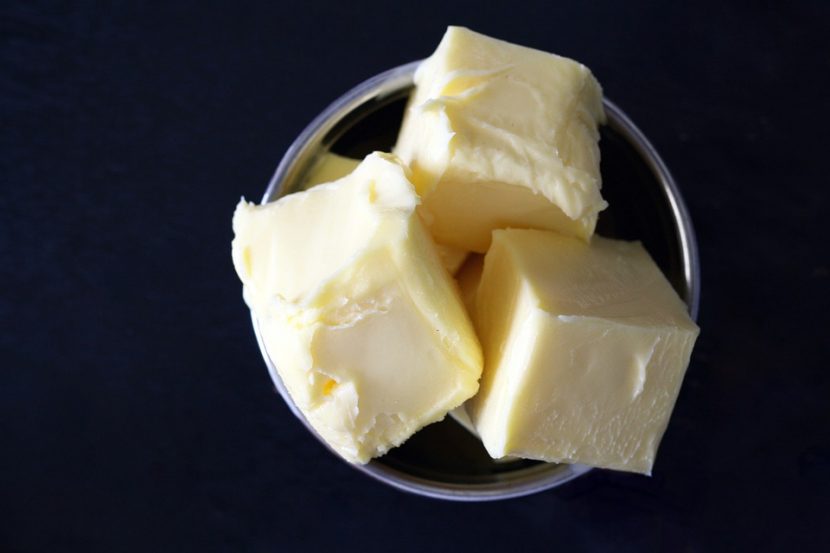
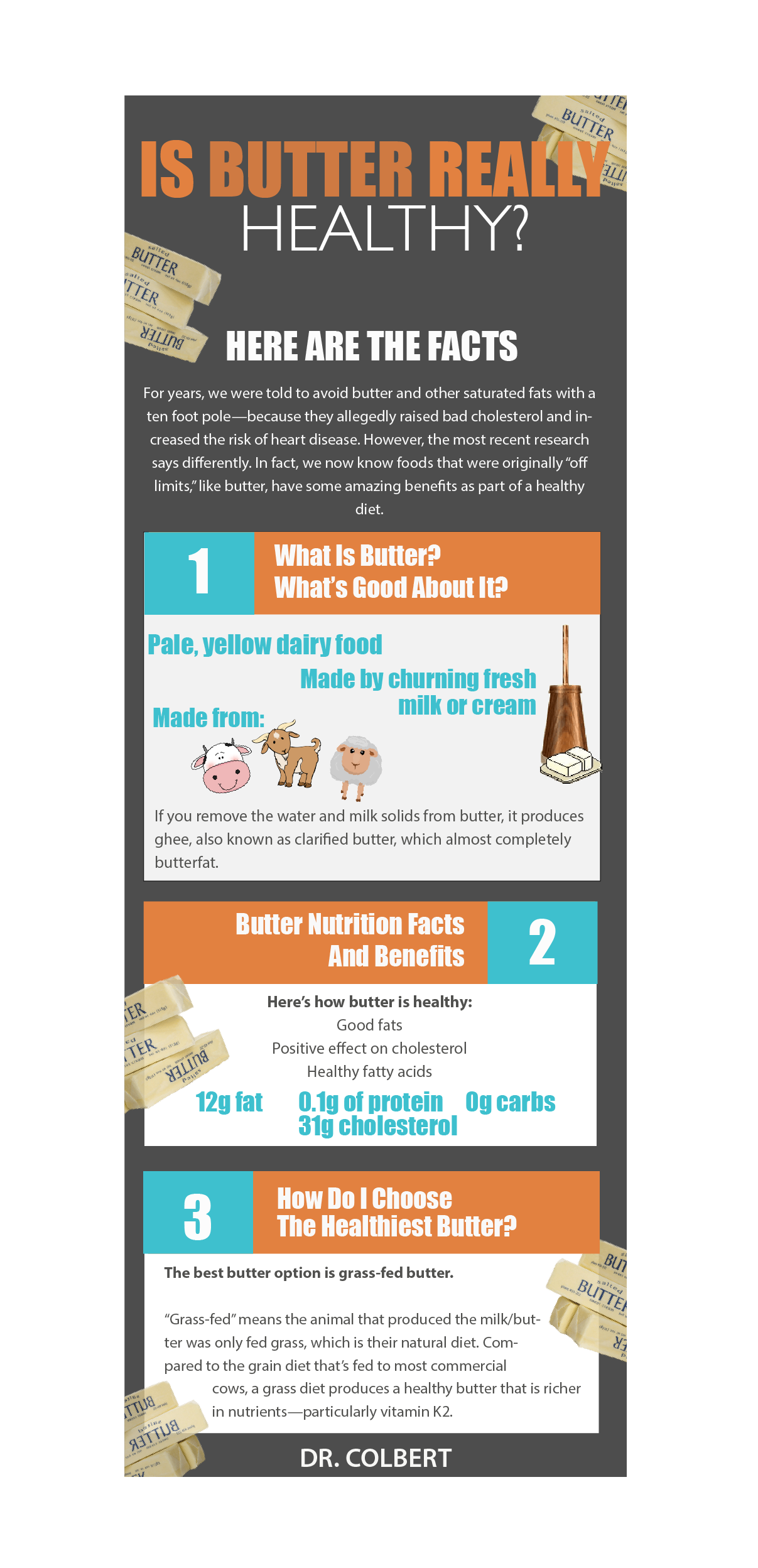

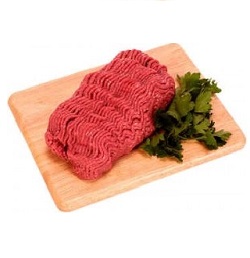
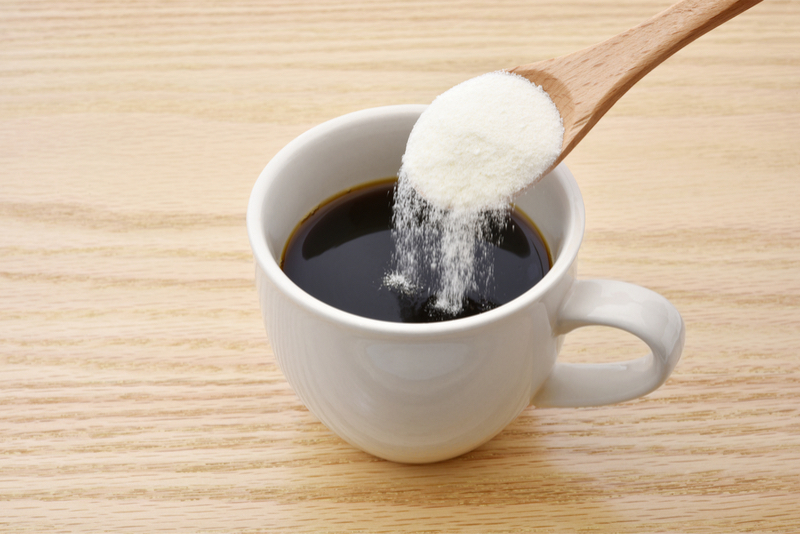
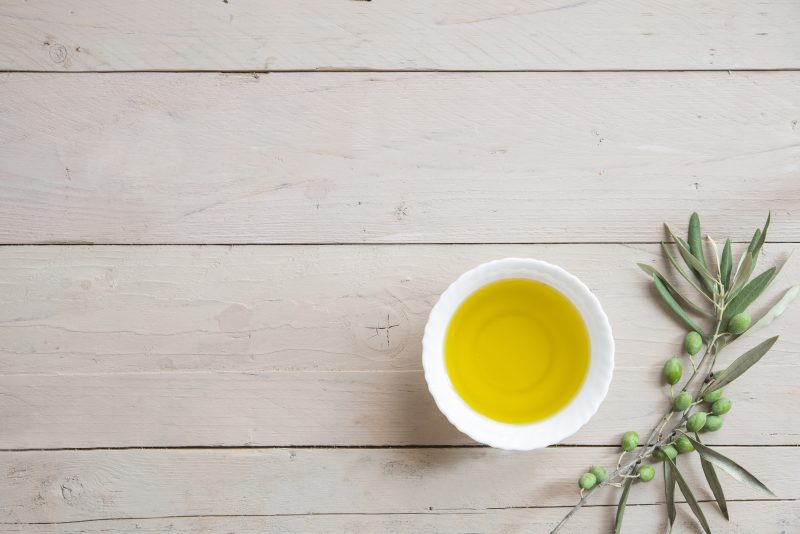















I use Earth Balance (organic whipped) is this a good choice?